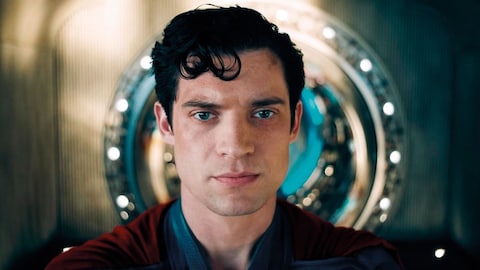Welcome to the buffet of broken men—where vulnerability is the new sexy
How summer releases of 2025 refashioned masculinity.

Confession: I love broken men. Sounds harsh? Masochistic? Cruel? Think of James Gunn’s Superman (David Corenswet) this summer—he was thrashed across the ice in Norway in the opening scene, facing the first defeat of his short but glorious career. This superhero—invincible, a tad above us, cis and heterosexual—is punctured, vulnerable, and perhaps even shaken?
The suffering is not endearing, but the context is. It is a brutal reminder that the man, in fact, is not made of steel. Not a hardened shell, but a gaping wound. Unbearably tragic, yes, but more humanising than a facetious display of bravado.
These wounds can run a spotlight on the tragic systemic forces, like they do in Shazia Iqbal’s Dhadak 2 for Neelesh (Siddhant Chaturvedi), a Dalit man whose life is marked by casteism, and is hunted by his potential girlfriend’s upper-caste family, and in Ryan Coogler’s Sinners, where this awareness of racial discrimination ends up informing the survival instincts and foresight of Smoke (Michael B Jordan), who is able to fend off vampires and the Ku Klux Klan.
This woundedness in these films is not a narcissistic summon, as can so often be the case with stories of “tragic” men. Instead, it is a siren that helps them place the foulness of their situations. Then there is the love story. Mohit Suri’s Saiyaara’s Krish Kapoor (Ahaan Panday), a “bad boy” (he smokes and has casual flings), who sings in an anguished crescendo for a life of privilege he was never privy to, and then for the lover who is on the verge of forgetting him (she has Alzheimer's). Here is a man whose self-conceitedness evaporates so he can be a Hindi cinema lover, instead.
In the mix are those who are wounded by the transactional nature of our late capitalism era. In Materialists, Celine Song’s “thinking woman’s” rom-com, where a matchmaker (Dakota Johnson) is confused between a rich man and a broke ex-boyfriend, there are numbers of the other sorts: Height, weight, income, and the likes. The mating market is driven by them, rendering everyone as a commodity, and a victim. This is regardless of their class position, as is the case with Harry (Pedro Pascal), a financier, who lives in a $12 million apartment, but is still unable to rid himself of the insecurity of his height, and gets a surgery to resolve the “issue”. In the same film, John (Chris Evans), finds himself economically desperate, unable to compromise on his high-minded idea of what kind of acting work he should do.
For their sake, Materialists offers a gentle suggestion: Love doesn’t need justification—love for the sake of love is enough. On the same line, but in contrast is F1’s cocky Sonny Hayes (Brad Pitt), who tries to make sense of the sport’s ecosystem driven by media attention and numbers, rather than the pure pursuit of being a racer. His own such pursuit in the past had resulted in an accident that was so awful that it retired him from the profession, till a serendipitous call came years later. F1 is a reminder, though, that in the summer of gentle masculinities enacted by Pascal, is also a Pitt (pun absolutely intended). Hayes skirmishes against traditional rules for safety of the sport, often crashing into other drivers with a disregard that is alarming, if not potentially fatal. The brokenness, here, is a shield for impunity.
This man is not just broken, though. He is, to put it delicately, pitiable. Luca Guadagnino’s Queer, based on William S Burroughs’ novel, which arrived on Mubi this year in India, has one such man. The protagonist’s (Daniel Craig) one-sided desire for a younger, beautiful man becomes putrid, and for a large chunk of that screentime you see him slather his own humiliation repeatedly. On the same spectrum is Mr. Fantastic (also played by Pascal) from Fantastic Four: First Steps, Marvel’s iconic elastic man, who believes there is something fundamentally off about him, due to which he is unable to extricate himself from logic, and occupy the realm of feelings, a state he has to straddle as he ideates how to save the world.
At best, the broken man energises us into refashioning masculinity. One where vulnerability feels heroically legible, and becomes a point in itself. At worst, he becomes something for the plot to overcome. But his ubiquity lassoes the question of whether this is a stop or a reckoning.
All images: Netflix
This article first appeared in Cosmopolitan India's September-October 2025 print edition.
Also read: Your 2025 guide to knowing when 'He’s (or she’s) Just Not That Into You'
Also read: The new ‘Wuthering Heights’ trailer is steamy, chaotic, and totally dividing the internet